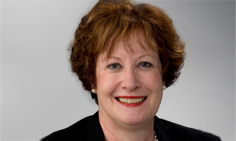A RECENT study found higher than normal levels of distress and behavioural problems in children of a parent with cancer, with the biggest predictor of distress being family dysfunction.
The findings led the authors to advocate for screening and referral of vulnerable families for “targeted, family-oriented, and child-focused interventions delivered by a multidisciplinary psycho-oncological team”.
At first glance it seems logical. But this was a cross-sectional study with no baseline measures and no control group. The average time since cancer diagnosis was 2 years.
How can we be sure that the reported link between family dysfunction and children’s distress has anything to do with the cancer? And even if distress is related to the cancer, is screening and referral the best option?
The first issue to consider is that if such specialised services exist they are vanishingly rare, at least in Australia. Publicly funded psychosocial services for children and adolescents face the same fiscal pressure as other health facilities and by necessity focus on the more severe end of the spectrum in terms of mental illness and distress.
Why screen if there is no obvious next step? Experience in oncology demonstrates that screening is ineffective if there is no access to after care.
The second issue is that the evidence base for interventions with distressed children of parents affected by cancer is thin. In addition, while it is tempting to assume that parents would gratefully accept referral (to the idealised service), the reality is that many people decline psychosocial referral because they feel that they already have sufficient support.
Most compellingly, the notion of screening and referral medicalises the distress which is a common and perhaps inevitable response to adversity.
Children may encounter a range of adverse experiences, of which parental cancer is just one. They can experience learning difficulties, parental unemployment, financial strain and marital breakdown, to name a few.
Having a parent with cancer is hard, but so is having a parent who is depressed.
Not only that, the notion of specialised referral conveys to parents (and children) that this is a really big deal and they do not have the skills do deal with it. But typically they do.
There is an abundance of research demonstrating that having difficult experiences does not inevitably damage a child. In this instance, it is less about the cancer and more about how it is handled that will affect the outcome.
Health professionals have a role in encouraging parents to discuss their illness in language their children can understand given their age and developmental stage.
Attempts to conceal the diagnosis almost invariably fail, and children who find that they have been deceived with even the purest of intentions are likely to feel angry and resentful. Secrecy also provides a setting for development of misinterpretations and misunderstandings.
In contrast, providing an environment in which the child can talk about their feelings (even the really scary and angry ones) is likely to help children to cope.
Readily accessible resources can guide parents in these discussions.
Two US child psychiatrists advocate simple strategies including keeping a routine, encouraging children to maintain sporting and social activities, and ensuring appropriate supervision and maintenance of rules.
One of the single most striking factors shared by those children who flourish against the odds is access to at least one adult who listens and values them for who they are.
Typically this is a parent, but in times of strife it might be a grandparent — or even the family GP.
Associate Professor Jane Turner is a psychiatrist based at the University of Queensland, with special interests in the impact of advanced cancer on patients and families, and development of sustainable models of psychosocial care.

 more_vert
more_vert
Psycho-social services are grossly underfunded and need to be significantly improved. The quality of a society is being measured against how it deals with its weakest elements – criminals, pensioners, children and the sick. While healthcare in this country is most likely still in the top 5 to 10 % globally the system has begun to fail some of its clients, ie relative & kids of adults with cancer. Being a cancer patient myself I can confirm that a stable, healthy family environment is vital for your own recovery; why our Government does not see this is incomprehensible to me. It’s not rocket science, Malcolm !
A skilled GP who knows the family can be so incredibly important in this type of situation.- it takes that bit extra effort and energy on the part of the GP.